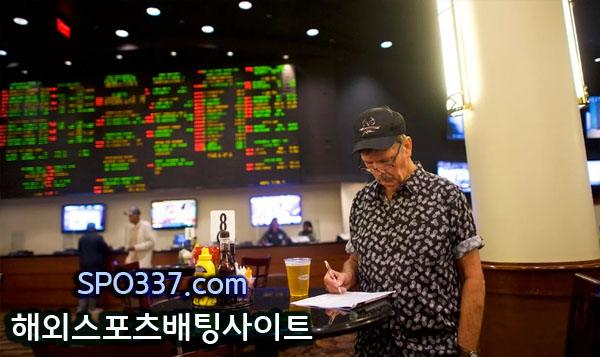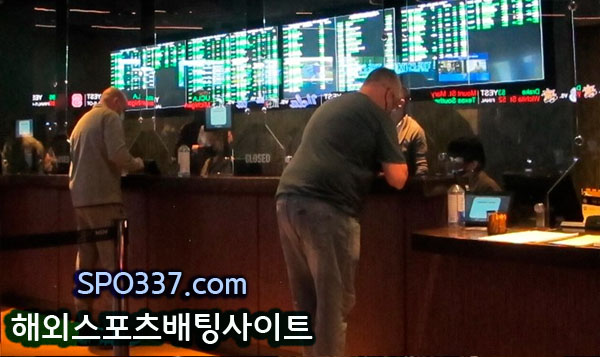Indiana Sports Wagering Bill Contains Stunner 'Honesty Charge' Arrangement for Associations
Indiana House Delegate Alan Morrison (R-Locale 42) on Monday followed through with his guarantee to present a bill that would bring legitimate games wagering to Indiana gaming offices. The most outstanding and, honestly, amazing arrangement of House Bill 1325 (HB 1325) is the consideration of an "honesty expense" that would give sports associations a 1% charge on sums bet at state-authorized sportsbooks.
That is 1% on the complete wagering handle, not the "hold," the last option of which is the sum that sportsbooks keep after rewards are paid out. That 1% could add up to a lot of cash and a major cut of sportsbook benefits thinking about different charges and expenses that the bill would likewise force.
As per a report by ESPN's David Purdum, the bill emerged after NBA and Significant Association Baseball authorities examined the matter with Morrison. "We've positively had some info and invited a few exhortation and language that causes the associations to feel somewhat more agreeable," Morrison told ESPN on Monday.해외배팅사이트 가입
The "cash question" — how the associations would benefit from legitimate, controlled sports wagering — has been the last obstacle to extended sports wagering, yet this improvement is astonishing on the grounds that, indeed, the associations obviously campaigned for the sort of bill they contended last month would abuse government regulation before the US High Court.
Earth shattering 'Trustworthiness Expense' Arrangement for Associations in Indiana Sports Wagering Bill; Starting a Trend, Charges and Expenses, Different Arrangements of Note해외 배팅 에이전시
The government regulation that HB 1325 would disregard is the Expert and Beginner Sports Assurance Act (PASPA), which successfully boycotts sports betting external Nevada. HB 1325 couldn't produce results except if Congress repeals PASPA or on the other hand assuming the High Court decides for New Jersey in Christie v NCAA, in which the state contends that PASPA is unlawful. A choice all things considered is supposed to come this approaching spring.
Various times the NCAA and the elite athletics associations, including the NBA and MLB, have gone against themselves, concealing the genuine reason for their issues with legitimate games wagering under the pretense over worries for the respectability of the games. The genuine inspiration for their obstruction is made clear by their campaigning for this bill under the watchful eye of the High Legal dispute has even been chosen the situation.안전 해외배팅 에이전시
Here is the arrangement presenting the "trustworthiness charge":
Sec. 3. A games betting administrator will transmit to a games overseeing body that has given notice to the commission under segment 2 of this section an honesty charge of one percent (1%) of the sum bet on the games overseeing body's games. The games betting administrator will dispatch uprightness expenses to the games overseeing body something like once per schedule quarter.
The charge referred to Segment 2 is dependent upon an association telling Indiana's overseeing bonus that "constant data sharing for bets put on the games overseeing body's occasions is essential and alluring." Assuming this is the case, the sportsbook administrators will give that information.
Clearly, the associations will continuously consider such data since that is the sort of information routinely observed by Nevada and worldwide administrators. Furthermore, that is the means by which they get compensated.
While HB 1325 contains no unequivocal definition for "trustworthiness expense," or how the associations will utilize the charges, the induction is that associations will utilize totals gathered for uprightness observing administrations (one such supplier is Sportradar, with which the NBA has proactively laid out an information assortment organization). In any case, those administrations won't cost anything in that frame of mind of the sum they would gather so active, it's an exceptionally decent wellspring of income.
A Beneficial Point of reference for the Association
The questionable timing demonstrates that the associations need to advance out beyond the High Court administering, while they have some influence. Assuming the court were to run PASPA illegal and open the entryway for sports wagering in New Jersey or the quickly developing number of states trying to execute sports wagering at club, riverboats, racinos, circuits and somewhere else, what motivator do the states need to pay the associations 1% of anything?
The states wouldn't require consent from the associations, notwithstanding a government structure that forces a comparative "trustworthiness charge," which in France is all the more precisely named a "wagering right" (likewise at 1%). Obviously, association authorities could campaign individuals from U.S. Congress for such a charge.
It's simply semantics however to equivocally consider it an "honesty charge" is clever with regards to a case in which the games associations have relentlessly pronounced that lawful games wagering outside Nevada would unsalvageably hurt the uprightness of the games.
To the extent that the potential trustworthiness charge produced income that could come, how about we consider Nevada's record $4.5 billion games wagering handle in 2016. So the associations (distributed in view of the sums bet on their separate games) would add up to $45 million (and that is simply Nevada!).
That $4.5 billion handle added up to $219.2 million income for the books in 2016 on a 5.4% win. So the 1% honesty charge would add up to about a 20% hack off of last year's benefit.
For the trustworthiness charge to come from the handle, not the hold, would compare to incredible arrangement of cash for the associations and furthermore safeguard them from sportsbook misfortunes: If some sportsbooks got squashed and took just a 2-3% win or some way or another fell into the red, indeed, it wouldn't influence the associations' cut in light of handle.
It's likewise fascinating that the NBA clearly is engaged with campaigning for state-based regulation since NBA magistrate Adam Silver and Senior VP Dan Spillane, vocal defenders for the legitimization of sports wagering, have expressed that they go against PASPA in light of the fact that they're explicitly looking for a government structure "to assist them with safeguarding the uprightness of the game." Reach your own determinations.
Prominently, this respectability charge arrangement doesn't show up in an Indiana Senate variant of the bill, SB 405, presented on Monday by state representative Jon Portage.
Could sportsbooks still make money notwithstanding the honesty expense and a 9.25% duty? Likely, however it would crunch the books and maybe give neighborhood bookies and unlawful seaward sportsbooks a benefit (lower vigs) that could dismiss possible clients to Indiana sportsbooks.
However, the gambling clubs might likely want to bargain, however not without pushback, in light of the fact that the sportsbooks would turn into another convenience expanding people walking through to land-based properties where gambling clubs cut a lot greater benefit from gambling machines and table games. Additionally more individuals would come in for eateries, lodging stays and spas.
Expenses and Charges Under HB 1325
The bills sets up a commission that would proclaim rules and guidelines for licensure at a state-authorized gaming office and satellite offices — setting rules for bookkeeping, record-keeping, worker historical verifications, commission delegates to get to the sportsbooks for checking, etc.
Gaming offices needing to run sportsbooks would need to pay an underlying expense of $75,000, in addition to $5,000 assuming that it wishes to present intuitive games betting (for example Web based versatile games wagering), in addition to a $50,000 restoration charge following five years. This is a ton more reasonable than the $10 million beginning charge that Pennsylvania's HB 271 would exact on sportsbooks (notwithstanding a ludicrous 35% duty).
Aslo HB 1325 would force a 9.25% expense on changed gross receipts (successfully the hold, or rewards). That is in the vicinity of the 6.75% charge demanded on sportsbooks in Nevada. The expense would go into a games betting asset and applied in similar way as other public assets.
Three Extra Arrangements of Note
(1) The bill explicitly allows betting on university sports in the state where the NCAA is settled. NCAA president Imprint Emmert has recently drifted the possibility of a "cut out" for NCAA games, at the end of the day, barring NCAA games from betting. Morrison's bill drifted a major screw you to Emmert on that. Wagering on university football and ball games addresses (plus or minus a few focuses) around 25% of a commonplace sportsbooks' general handle.
(2) Indiana licensees would be permitted to make on the web/portable sportsbooks for other Indiana occupants situated inside in the state (uplifting news for geolocation programming administrators; and
(3) Licensees would be allowed to offer games betting to: Supporters situated external Indiana in a state with which Indiana has gone into a corresponding consent to permit sports betting through an intelligent games betting stage.
That is quite enormous and could utilize some explanation. The arrangement doesn't meticulously describe the situation yet keep away from cross paths with the Government Wire Demonstration of 1961, sports wagering would need to be lawful in the external states where clients are playing. The protected harbor arrangement would permit that.
Remain tuned for improvements on the Indiana charge, which should be accommodated with the senate variant, as well as improvements in a developing number of others states taking actions in front of the High Court choice.







댓글
댓글 쓰기